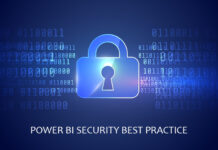With cyber-attacks constantly on the rise and hackers going after companies of all sizes these days, it pays to have a solid cyber resilience plan to protect your business and intellectual property. There are many ways to establish a solid baseline for this kind of thing, but we believe the below tips will be most useful in getting you off to a good start:
1. Keep Backups of Everything
First up, it is absolutely vital that you keep backups of anything and everything that could be considered in any way important. It’s better to store things that you don’t need rather than risk not having something you do when the situation arises. We suggest making use of a cyber resilience and cloud-based disaster recovery system to facilitate this as it is far more secure than physical storage.
2. Provide Cyber Security Training for Staff
You would hope that everyone within your business knows the basics of cyber security – things such as never keeping the passwords you were assigned when you first joined a company and always keeping your software and device up to date. However, you would be surprised by how many employees don’t follow (or simply don’t know) these best practices.
This is why it’s essential to provide cyber security training for all staff. It may seem like an unnecessary expense, but when you consider the cost of training against that of a data breach, it is clearly the cheaper option.
Since you’ll be receiving training from a professional in the area, you and your team will also learn about other ways to protect yourselves and the company. This is sure to give you a competitive edge against anyone who would seek to do you harm.
3. Invest in a Good ERP Platform
Another way to improve the cyber security of your business is to integrate Pronto ERP software. Not only does the platform have inbuilt security, but it also greatly improves productivity. Errors tend to be less frequent when people are functioning at their best, and your ERP system will provide an extra layer of protection against data loss as relevant documents can be assigned to projects within the system.
4. Keep All Devices and Software Up to Date
Manufacturers and software designers don’t just sit around creating updates all day for the fun of it. Update packages often provide key security and functionality patches that your device will be incredibly vulnerable without. So, when a new one is released, it’s a good idea to install it as soon as possible.
5. Multi-Factor Authentication Is Your Friend
Although many people consider it annoying, multi-factor authentication really is your friend. Far too many people have passwords that are easy to guess (such as their birthday, the name of a loved one or pet, or even the word “password”), so having an extra layer of security is never a bad idea.
We suggest going with an option that requires the use of biometrics for organizations where security needs are particularly high. However, in most cases, you’ll be able to get away with simply having your system set to send a single-use login code to the individual who is trying to log in. This will also give you an early warning if your system is under attack as employees will be notified immediately if someone manages to crack their password.
Implement these tips as soon as possible, and speak with a cyber security expert if you require further guidance.







